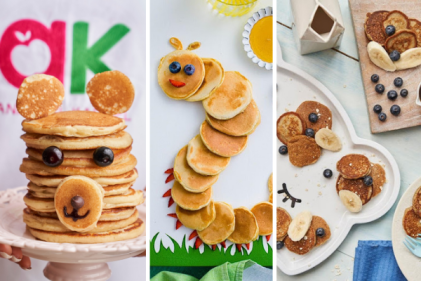Mine was called Buttercup and she lived in my sister's wardrobe. Aged 5, I would pop in and have a chat with her - oblivious to my parent's concerned faces.
Imaginary friends come in all shapes and sizes. They can be based on someone your child knows, a storybook character, a cuddly soft toy or can come entirely from your child's imagination.
You may find yourself having to set a place at the dinner table for Coco the purple monkey or having to discipline that pesky monkey for eating all the biscuits in the cookie jar! But now, these flights of fancy are actually being hailed as positive creations from your child.
Researchers have found that children with imaginary friends are more socially skilled, they perform better on tests of verbal skills and, perhaps not surprisingly, they are more creative than children who do not have imaginary friends. What's more, these benefits do not end in childhood.
Jonathan Plucker is a creativity researcher at the University of Connecticut. His research has found that it doesn't matter if they are artists or engineers or entrepreneurs, what you are most likely to find if you do some digging into especially creative and successful people is that they had an imaginary friend in childhood.
So, when do they appear and how long do they last?
Children can have imaginary friends from as young as two and a half. They will usually stop playing with imaginary friends when they are ready to move on. Experts suggest that imaginary friends are likely to be around for several months but could be a feature in your child's life for up to three years.
Your child’s imaginary friend could be someone who:
- Listens to and provides support for your child
- Plays with your child
- Can do things that your child can't do
- Is unique and belongs only to your child
- Never judges or finds fault with your child
Your child has complete control over what the imaginary friend does and says.
This in itself can be part of the appeal of the imaginary friend.
An imaginary friend allows your child to explore a make-believe world that they have created entirely by themselves. In fact, some experts believe that children with imaginary friends may be more imaginative and more likely to enjoy magical stories and enjoy fantasy play. Make-believe friends can offer great insight into your child's inner world, likes, dislikes, and tastes.
Have more questions about your child's emotional and creative development? Join us in Citywest Hotel on Saturday the 21st October for our Parenting Masterclass with the amazing Dr. Elizabeth Kilbey, the child psychologist from the Channel 4 show, The Secret Life of 4, 5 and 6-year-olds.







